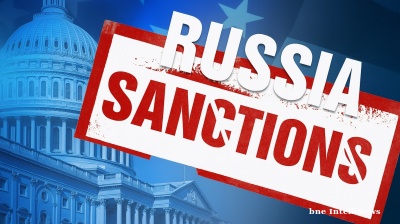"The cynic is his own worst enemy. It is his nature not to believe in the goodness of the world and thus he robs himself of the possibility of partaking in it.” - Mahatma Gandhi
Watching Yulia Navalnaya's stoic declaration to carry on her husband's battle against Putin and his regime, I found myself wrestling with scepticism, not about Yulia's intentions or her undeniable bravery, but about the broader context in which she finds herself. Her inspiring resolve has sparked widespread speculation on whether she could unify Russia's deeply fragmented and directionless liberal opposition—a task that has eluded many, including her husband. The crux of the issue lies not in Yulia's capabilities but in the pervasive cynicism that saturates all segments of Russian society. This cynicism, a historical and cultural fixture, not only challenges the potential for political unity but also raises critical questions about the very desire for it among the “leaders” of the many factions of the so-called “Liberal” opposition. Despite Yulia's impressive stance, the sad reality, shaped by this all-encompassing cynicism, suggests a daunting path ahead.
“Sasha, you are a good guy, an excellent professional, but you have one major weakness: you lack the cynicism necessary for life in Russia!” - a Russian oligarch over dinner and wine.
These words were uttered to me a long time ago by a Russian oligarch at a dinner in an unexpected setting where Russian political leaders, communists, nationalists, liberals, and adherents of the party of power congregated in congenial banter over exceptional sushi paid for by one of Russia’s richest oligarchs. It was surprising to see people who, in public, tore at each other’s throats, in private, fed at a common trough. It was also my first real introduction to politics, Russian style.
I had not heard a more succinct and deeper analysis of the root of Russia’s problems before or since, a simple yet ignored explanation for Russia’s dysfunction. Cynicism, on an industrial scale, lies at the heart of the tragic events unfolding in Russia and Ukraine. Cynicism precludes the country’s ability to shake off historic shackles and pursue a better future. Cynicism keeps Putin in power and the nation economically and morally impoverished. In Russia, trust is luxury, sincerity is folly, and truth belongs to whoever holds power. Russia is not about sentiment, it is about survival, pure and simple.
I came to Russia in 1997 with unbridled enthusiasm for its future, convinced of the inherent goodness of its people and sold on the idea that Russian society longed to build a free and democratic future. I admit I was naive, but it was an electric time when change was everywhere and in everything. Freedom was not a platitude. It was displayed in all aspects of public life, from newspapers to television to public speeches. Some of the most biting political satire and commentary were to be found on NTV and ORT, the two national TV channels owned by competing oligarchs. It is hard to believe today that Russia felt freer than many parts of the West just over twenty years ago.
I was convinced Russia would turn the corner from authoritarianism and bloody dictatorship and that a reversion to the terror of the 30s was impossible. Ironically, most of my Russian friends and colleagues did not share my optimism. They took a more pragmatic view of events. For most, it was a temporary respite during which you had to make as much money as possible and then beat a path out of the country. In this context, my conviction, politeness, and generosity were viewed not as demonstrations of decency but as the miscues of a simpleton who could and should be taken advantage of. This attitude extended to any foreigner who romanticized Russia. Russians take cynicism, as they do everything, to the extreme. In a country where stability is an unknown luxury, people choose to live for the moment, always emphasizing short-term gain over long-term planning and always hyperaware of their own self-interest.
So, what does Russian cynicism have to do with Yulia Navalnaya? In a word, everything. It is the determining factor in whether she has a chance to make a meaningful impact or whether her voice will be diluted and lost in the cacophony of the many cynical Russian “Liberals” making a buck railing against Putin from the comfort of the West.
I would argue that the Russian “Liberal” class takes cynicism to a higher plane, historically trading on liberal values for personal enrichment, selling political dissent as a commercial enterprise rather than a point of moral conviction. They are directly responsible for transforming democracy, liberalism, and the free market into dirty words for most Russians. The list of “Liberal” sell-outs to Putin is long and distinguished, including Anatoly Chubais, Alexey Venediktov, Ksenia Sobchak, and Grigori Yavlinskiy, to name a few. Self-aggrandizement and self-interest superseded any conviction or commitment to meaningful change in Russia. The tales of a post-Putin Russia miraculously transforming into a democratic, prosperous society coexisting in harmony with its neighbors are manufactured to feed the wishful thinking of Western sponsors, creating the illusion of real struggle where none exists.
From the early 2000s onwards, there were many “Liberal” parties in Russia, from Yavlinky’s Yabloko to the Union of Right Forces, Democratic Choice, and PARNAS, as well as other smaller political movements. All were led by people of dubious character whom the populace despised for their overt corruption and unbound hubris. All have either left Russia or openly pledged fealty to Putin. No one was interested in forming a truly unified front against Putin and his United Russia. They were never popular or presented a serious political threat to Putin, nor did they really want to. They were content to collect their six pieces of silver to lend democratic credibility to an authoritarian regime. They continue in that vain in “exile.”
“Liberals” living in Europe love to hold conferences, at least two were organized in Berlin in 2023 alone. They debate for hours about voting procedures, organizational structure, and who will hold preeminence within the organization to be created. The stated goal of unifying their efforts to fight the current regime invariably devolved into squabbles over terminology, functions, and criticism of each candidate vying for leadership. The end result in each case was nothing more than another two-point list of high-minded goals and no strategy. They came, argued, and left as disunited as ever to continue their pursuit of personal enrichment, peddling their anti-Putin bona fides. These conferences do more to discredit the “Liberal Opposition” than to legitimize it.
Alexey Navalny’s decision to return to Russia was viewed not as an act of bravery and sincere sacrifice but as a naive miscalculation of his popularity among the masses. He was never viewed as the leader of the “dissident” movement because there was and is no movement or interest beyond monetizing every tragedy to the fullest. However, he served as a great totem for increased funding to “Liberal” opposition pundits who found employment in Western media outlets and rivers of gold on YouTube and Telegram. All were happy to suck at the teat of the Navalny brand.
This was the Rubicon that Alexey Navalny could not overcome. His conviction, courage, and force of personality were not enough to overcome the deep-rooted cynicism of the Russian zeitgeist. Even the people whom one would expect to rally around the one man willing to stand up to dictatorship at his personal peril twisted themselves into knots to find reasons to criticize him rather than support the cause he was fighting for. Therefore, Yulia Navalnaya enters a void fueled by self-interest, indifference, and cynicism when she steps into the breach to take up her husband’s cause. Unfortunately, there is nothing to unify, and no one is capable of unifying and legitimizing the Russian “Liberal Opposition,” at least as it exists in the West. As a political force, it has no credibility either in Russia or abroad, and nothing will change that. If change is to come in Russia, it will have to come from within, by people yet unknown, who will tire of war and pervasive fear. One beacon of hope is the gathering soldiers, wives, and widows movement, which is gaining strength and popularity as the death count mounts. These women have skin in the game and the moral high ground to overcome the threat of repression. It is hard to send in paramilitaries to bash the heads of women whose husbands are doing your dirty work in Ukraine. Only time will tell.
Opinion

COMMENT: ANO’s election win to see looser Czech fiscal policy, firmer monetary stance
The victory of the populist, eurosceptic ANO party in Czechia’s parliamentary election on October 6 will likely usher in a looser fiscal stance that supports growth and reinforces the Czech National Bank’s recent hawkish shift.

COMMENT: Ukraine's drone attacks on Russian refineries have probably reduced throughput by 30.4%, less than headline figures suggest
Ukraine has been hitting Russian refineries and caused a fuel crisis that has spead across multiple regions. The headline figure is that oil refining has been reduced by 38% since August, but digging into it and the reduction is likely less.

MACRO ADVISORY: The unintended consequences of Western sanctions
Since 2014, Western nations have hit Russia with a total of 26,655 sanctions (to mid-September 2025), with 23,960 coming after February 2022. The largest target group, with 13,611 sanctions, is state officials, business owners, and oligarchs.

PANNIER: Few will mourn passing of Turkmen Iron Lady Atajanova and Uzbek Grey Cardinal Jurabekov
Their deaths seem to have been conveniently overlooked for the most part by the authorities of today.
_Cropped_1759411324.jpg)


